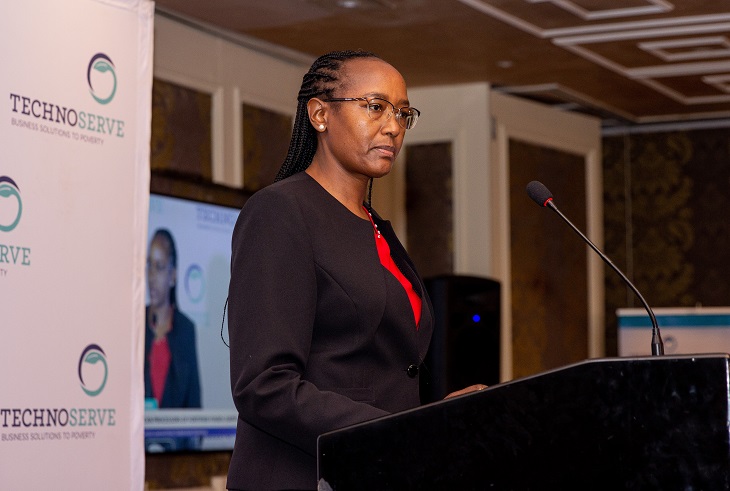Out of a total under-5 population of 7 million, 1.82 million children (26 percent) are suffering from chronic malnutrition (stunting or low height-for-age), according to the Kenya National Bureau of Statistics (KNBS).
Although malnutrition indicators are improving, it is estimated that from 2010–to 2030 undernutrition will cost Kenya approximately US$38.3 billion in GDP due to losses in workforce productivity.
According to TechnoServe, fortifying staple foods like wheat and maize flour with key vitamins and minerals is one of the most scalable, sustainable, and cost-effective tools to combat malnutrition in Kenya and worldwide.
Data collected by TechnoServe shows significant progress in the fortification of wheat and maize flour in Kenya was presented. Fortification is the process of adding key vitamins and minerals that are essential for good health to staple foods flour.
Currently, in Kenya, compliance levels for wheat flour fortified with vitamin A, vitamin B3, and iron increased from 28 percent in 2018 to 49 percent in 2022, which equates to an additional 12 million Kenyans having access to adequately fortified products.
At the same time, compliance levels for maize flour fortified with vitamin A, vitamin B3, and iron increased from 51 percent in 2018 to 70 percent in 2022, which equates to an additional 11 million Kenyans having access to adequately fortified products.
“Multi-stakeholder partnerships are crucial to developing large-scale food fortification programs. Governments, civil society, and the private sector need to work together to achieve adequate food fortification and fight “hidden hunger” and its disastrous consequences,” Ms. Floor Overbeeke, Country Director (Kenya) TechnoServe.
The SAPFF Program by TechnoServe has established partnerships such as those with The Cereal Miller’s Association (CMA) and Kenya Bureau of Standards (KEBS) to further facilitate cross-sectoral collaboration.
Input quality, technical capacity of the industry, fortification monitoring, and use of appropriate technologies were discovered by the project to be crucial in driving change in compliance with the national food fortification standards.
“We need data! It is as simple as that … to nudge us in the right direction and to ensure that everyone is judged by the same standards”. Paloma Fernandes CEO, Cereal Millers’ Association (CMA).













